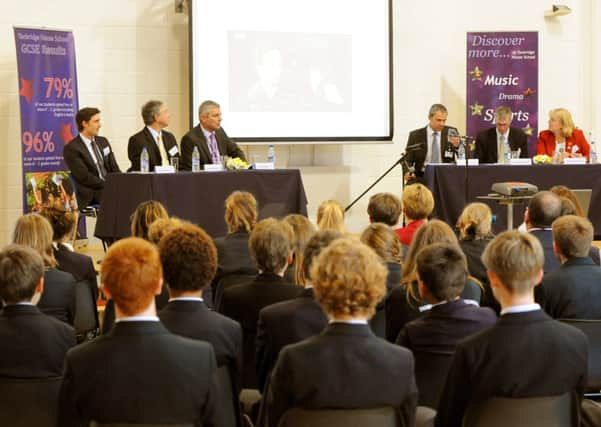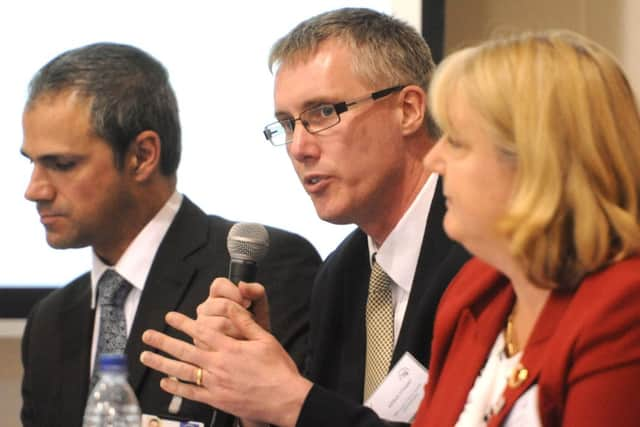Tanbridge House School pupils instilled with advice on leadership


The chief executive of West Sussex County Council, one of Horsham’s sports stars from last year’s Olympic Games, Gary Shipton the editor in chief of the County Times, and a leading businesswoman all shared examples of people displaying good and bad leadership qualities, and how students could best face the challenges of the future.
Pupils were able to ask questions of the panel as were local business men and woman.
Advertisement
Hide AdAdvertisement
Hide Ad“You need the courage to take some hard decisions. Leadership is not a popularity contest,” Judith Harding, programme director at BT Retail Innovate & Design, said.


“You need enthusiasm, direction, personal integrity and practice what you preach. These things are all about people and how you work with them.”
Asked if you needed anything extra to be a leader, she said that she had put herself through an MBA while raising two young girls. “I came out with the confidence and belief that I could do what I wanted,” she explained.
Questioned on whether a good education was needed to be a leader Mr Shipton emphasised the importance of inner self belief and it was vital for everyone to recgonise that they had at least one thing they excelled at, whatever it was.
Advertisement
Hide AdAdvertisement
Hide AdMeanwhile Kieran Stigant, chief executive of the county council, described his lowest career point as just after he took charge Ofsted rated its child services as ‘inadequate’.
He explained: “It made me feel dreadful. I was thoroughly ashamed of the organisation I was leading, but Ofsted came back and told us that all the work that our staff had put in and we were now adequate.
“The leadership was one of the main contributing factors.”
He added: “I do what I do because I can make the most difference by doing what I do.”
Asked if you needed to be bossy to be a leader Ms Harding said you had to adapt your style to different people, and give them permission to fail, as some of the biggest lessons were to be learned by failure.
Advertisement
Hide AdAdvertisement
Hide AdMr Shipton added: “In my view the great such of leadership is delegation. Handing over a project or a part of the organisation to someone explaining clearly what is expect of them helping them and guidance.
“If they own a bit of the organisation, if it’s their responsibility they all ensure it succeeds.”
Are there different kinds of leaders?
“In different types of circumstances you need different types of leaders,” Mr Stigant answered.
In response to a question asking if great leaders needed to be ruthless, Mark Hawkins, a member of Team GB Handball at the London Olympics, said: “I think being ruthless is a good thing to have. You have got to be single minded and get something done sometimes, and being in a team you will often do anything it takes.”
Advertisement
Hide AdAdvertisement
Hide AdBut Mr Shipton added: “Ruthless leaders tend to be short-lived leaders. I hope I’m strong and decisive, but the main message I give to my team is respect and support one another.”
Giving his opinion on how leaders dealt with people who disagreed with them, Mr Stigant said he was not an expert in everything that the council does, and it was a balance of taking on board different people’s opinions.
Questioned on how he judged successful leadership, Mr Hawkins said that great leaders got success out of people and they got the best out of people. He added: “It’s results at the end of the day.”
Asked which person he admired as a great leader, Mr Shipton quoted Winston Churchill’s speech at Harrow School in 1941: “Never give in, never give in, never, never, never, never-in nothing, great or small, large or petty - never give in except to convictions of honour and good sense.”
Mr Hawkins added: “Aim high say: ‘I can,’ and go for it.”